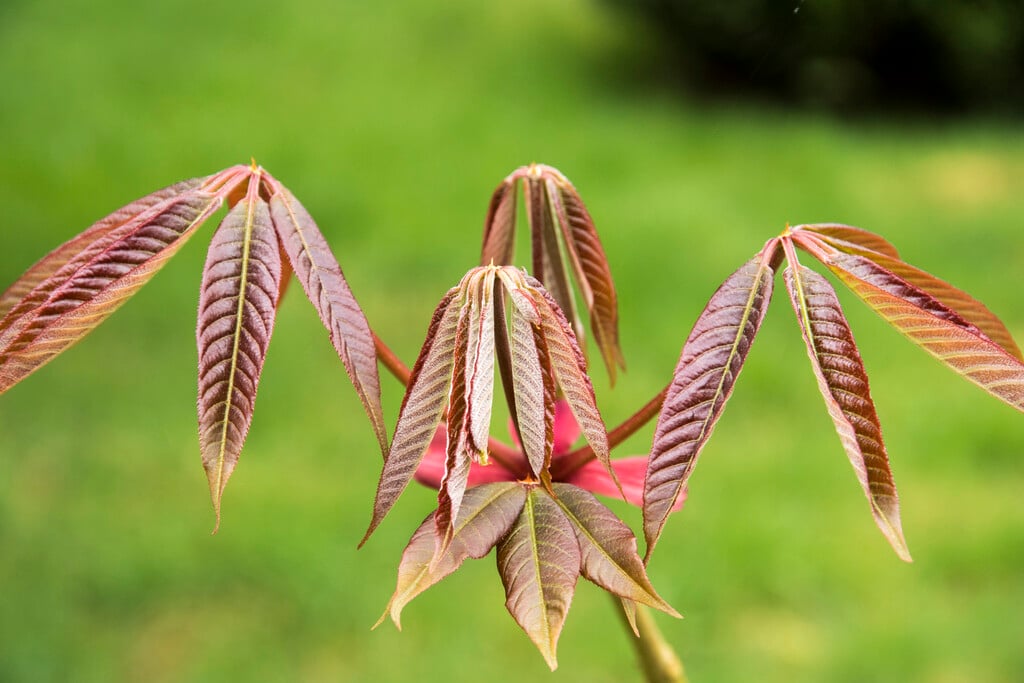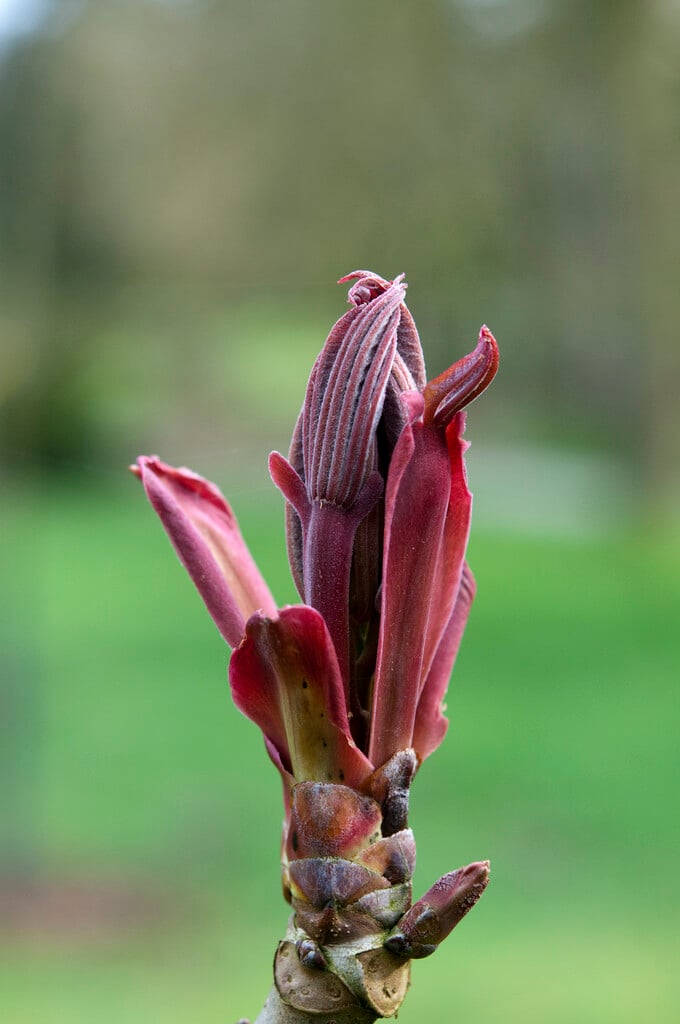Aesculus chinensis
Chinese horse chestnut
A broad-crowned, deciduous tree up to 15m tall, with palmate mid-green leaves with 5-7 leaflets. The white flowers with protruding stamens are producted inpanicles upto 30cm tall in mid-summer and followed by rough-skined round fruit up to 2.5cm across
Size
Ultimate height
Higher than 12 metresTime to ultimate height
20–50 yearsUltimate spread
4–8 metresGrowing conditions
Moisture
Moist but well–drained, Well–drainedpH
Acid, Alkaline, NeutralColour & scent
| Stem | Flower | Foliage | Fruit | |
| Spring | Red | |||
|---|---|---|---|---|
| Summer | White | Green | ||
| Autumn | Brown | Brown | ||
| Winter |
Position
- Full sun
Aspect
East–facing or South–facing or West–facing
Exposure
Exposed Hardiness
H7Botanical details
- Family
- Sapindaceae
- Native to GB / Ireland
- No
- Foliage
- Deciduous
- Habit
- Spreading branched
- Genus
Aesculus can be deciduous trees or large shrubs with showy flowers, palmately-lobed leaves and sometimes good autumn colour
- Name status
Correct
- Plant range
- N China
How to grow
Cultivation
Grows best in deep, fertile, moist but well-drained soil in a warm sunny position for best results. For further information, see our advice on tree cultivation
Propagation
Propagate by semi-ripe cuttings or seed. For more advice see our information on how to propagate from seed (tree/shrub
Suggested planting locations and garden types
- Architectural
- Low Maintenance
Pruning
Pests
May be susceptible to Horse chestnut scale and leaf-mining moth
Diseases
May be susceptible to coral spot, canker and leaf spot
Love gardening
Sign up to receive regular gardening tips, inspiration, offers and more
View our Privacy Policy
Get involved
The Royal Horticultural Society is the UK’s leading gardening charity. We aim to enrich everyone’s life through plants, and make the UK a greener and more beautiful place.

